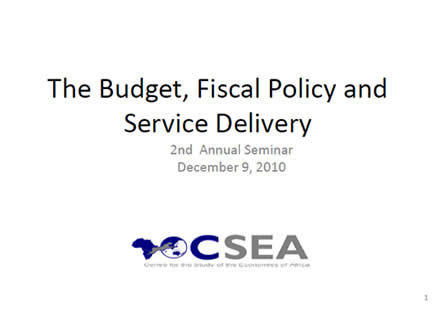Publication Date:December, 2010
Document Size:25pages
This presentation focuses on three key budget relatedissues in Nigeria:
- Fiscal policyimpact on macro-economy
- Budget processthe budget cycle
- Service deliveryprogramme-basedbudgeting
Background
- Since 2003, there has been progress instrengthening public financial managementof the federal government of Nigeria;
- However, in some respects there has beendeterioration in fiscal discipline and in thebudget process;
- There has been limited improvement inservice delivery;

